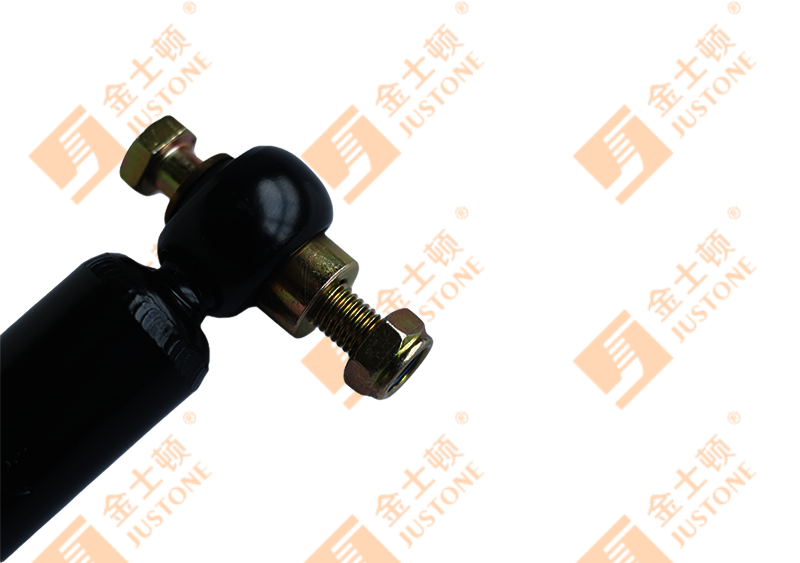Didn't find a product that suits you?
Contact us for the latest news.
Trailers are widely used in transportation, logistics, and recreational activities. Whether for carrying goods, vehicles, or equipment, trailers play a critical role in moving loads safely and efficiently. However, the connection between the towing vehicle and the trailer is not always a simple static joint. During driving, various dynamic forces such as acceleration, braking, road bumps, and cornering generate vibrations and jerks at the coupling point. This is where Trailer Coupling Dampers come into play. These devices are designed to reduce the impact and stress between the towing vehicle and the trailer, enhancing safety, comfort, and longevity.
Understanding Trailer Coupling Dampers
A trailer coupling damper, sometimes called a tow hitch damper or anti-shock device, is typically installed between the trailer hitch and the towing vehicle. It consists of a spring, hydraulic, or rubber element that absorbs shock and vibration. The damper allows a controlled amount of movement while preventing sudden jerks from transmitting directly to the trailer or towing vehicle. By doing so, it smooths out the forces acting on both components.
Key Reasons for Installing Trailer Coupling Dampers
1. Reducing Shock and Impact
When a trailer is towed over uneven roads or during sudden braking and acceleration, the coupling experiences abrupt forces. These shocks can lead to:
Damage to the trailer frame or cargo,
Strain on the towing vehicle’s hitch and suspension,
Uncomfortable jolts for passengers in the towing vehicle.
A trailer coupling damper absorbs these forces, converting sudden impacts into controlled, gradual movement. This reduces wear and tear on both the trailer and towing vehicle while maintaining cargo integrity.
2. Minimizing Sway and Oscillation
Trailer sway is a common issue, especially at higher speeds or in strong crosswinds. Sway occurs when the trailer begins to oscillate side to side, potentially leading to dangerous situations like jackknifing. Coupling dampers provide resistance to lateral movements at the hitch point, stabilizing the trailer and keeping it aligned with the towing vehicle. By damping oscillations, these devices improve driving control and reduce the risk of accidents.
3. Enhancing Towing Vehicle Stability
Sudden jerks from starting, stopping, or rough terrain transmit forces through the hitch to the towing vehicle. Over time, these repeated shocks can affect the suspension system, steering components, and chassis. Installing a trailer coupling damper reduces the force transmitted to the towing vehicle, contributing to better handling, reduced fatigue on mechanical parts, and longer vehicle life.
4. Protecting Cargo
Many trailers carry sensitive or heavy cargo that can be damaged by sudden jolts. From delicate equipment in utility trailers to fragile goods in commercial trailers, uncontrolled forces during towing can shift, crush, or break items. Coupling dampers cushion these forces, helping to maintain cargo stability and reducing losses due to damage.
5. Improving Passenger Comfort
While trailers themselves do not carry passengers in most cases, the towing vehicle often does. Sudden jerks, vibrations, or sway can make the ride uncomfortable for drivers and passengers alike. Trailer coupling dampers smooth the towing experience, making long journeys safer and more comfortable. This is especially valuable for recreational trailers carrying campers, boats, or caravans.
6. Extending Component Lifespan
Without a damper, both the trailer hitch and the towing vehicle’s coupling system experience repeated high-impact loads. Over time, this can lead to:
Fastener loosening,
Frame fatigue,
Suspension damage,
Premature wear of trailer components.
A coupling damper reduces peak stress and vibration, extending the service life of these critical components. This translates into lower maintenance costs and fewer unexpected repairs.
7. Compliance with Safety Standards
In some regions, trailers equipped with heavy loads or used commercially may be required to meet specific safety standards. Installing trailer coupling dampers can help vehicles comply with regulations regarding load stability, braking, and towing safety. This is particularly important for fleet operators or transport companies aiming to reduce liability and ensure legal compliance.
Types of Trailer Coupling Dampers
There are several types of dampers, each designed for specific towing conditions:
1. Rubber or Elastomeric Dampers: Simple, low-maintenance, and effective for light to medium loads. They absorb vibration and shock without hydraulic mechanisms.
2. Hydraulic Dampers: Use fluid resistance to absorb higher-energy shocks and provide smoother damping for heavier trailers.
3. Spring-Based Dampers: Offer adjustable resistance and are often combined with hydraulic systems for optimal control.
Selecting the right type depends on trailer weight, towing frequency, road conditions, and desired comfort level.
Trailer coupling dampers are not just optional accessories—they are crucial components for safe and efficient towing. By absorbing shocks, reducing sway, protecting cargo, improving comfort, and prolonging the life of both trailer and towing vehicle, these devices address many common problems associated with trailer towing.
For drivers who tow trailers regularly, whether for commercial transport or recreational purposes, investing in a high-quality coupling damper is a proactive step toward safer, smoother, and more reliable towing. It enhances control, reduces mechanical stress, and ensures that cargo and passengers reach their destination safely.
